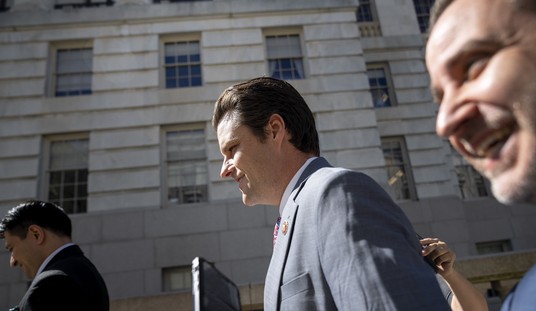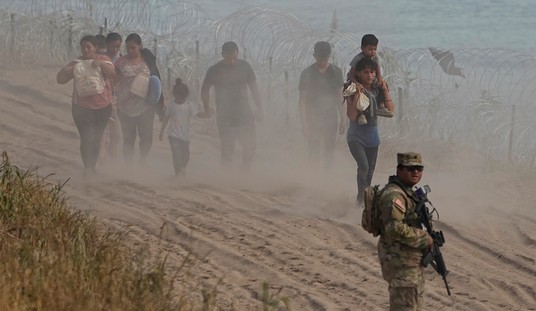One of the things that has amazed me about the election of President Trump has been the issues upon which conservatives agreed before November 8, 2016 and were split into warring camps after that date. Perhaps no example is more stark than the issue of vote fraud. Before Trump’s election vote fraud was assumed to be real and to have an impact. After that date, in the minds of a lot of previous believers, vote fraud was entirely a figment of Trump’s imagination. Except that it isn’t.
I’m not talking about the small scale, registering dead folks to vote scam like some progressive goober tried to pull in Virginia. I’m talking about the scale of vote fraud that elects big city mayors and members of the House of Representatives in 50-50 districts.
For instance, in 2014 the North Carolina director of election identified 765 North Carolinians who had voted in at least one other state. Another study found over 37,000 persons registered to vote in North Carolina who were also registered to vote in one of 28 other states in the only national voter database. The resources were not available to determine how many of those 37,000 did vote more than once but it is a good bet the number is above zero.
During the recounting of votes in Michigan after the 2016, 37% of all of Detroit’s precincts had more votes cast than the number of voters who showed up to vote. This is not someone shipping voters from precinct to precinct, something voter ID would stop. This is good, old fashioned ballot-box stuffing on a scale that Tammany Hall would have been embarrassed to try.
In the 2016 election, Chicago had a very similar problem:
More than 14,000 votes were cast in Chicago during the 2016 general election than there were voters to cast them, based on separate figures released by the Chicago Board of Elections, the chairman of the Chicago Republican Party has reported.
Chris Cleveland told the Chicago Wire that “on a whim,” he filed a Freedom of Information Act (FOIA) request with the board, which provided him with a list of 1,101,178 people who voted in the general election. An earlier post on the board’s website said that 1,115,664 votes had been cast.
None of this is news to election officials. The chief of elections of Broward County, FL, testified under oath in a lawsuit that her office had knowingly registered ‘hundreds’ of voters that gave commercial addresses, usually rented mailboxes, instead of residential addresses. She also said that she knew that numbers of convicted felons and illegals were voting but her office didn’t stop them.
And now we have an example of the possibility of a presidential vote being changed by vote fraud.
New Hampshire has been the subject of allegations by members of the Trump campaign that voters were brought in en masse to tip the scale in the favor of Hillary Clinton who won by 2,736 votes. And naturally, the pro-Clinton press piled on to deride the comments.
Yesterday, the New Hampshire’s Speaker of the House Shawn Jasper produced some pretty amazing numbers.
⦁ 6,540 people registered and voted on Nov. 8, based on presenting out-of-state licenses.
⦁ As of Aug. 30, about 15 percent (1,014 of the voters) had been issued New Hampshire driver’s licenses.
⦁ Οf the remaining 5,526, barely more than 200 (3.3 percent) had registered a motor vehicle in New Hampshire.
New Hampshire law gives drivers 60 days upon establishing residence to obtain a state license.
But more than 80 percent of voters who registered on Nov. 8 using out-of-state driver’s licenses, or 5,313 of them, neither had a state license nor registered a motor vehicle almost 10 months later.
Those 6,540 persons took advantage of “same day registration” laws and were able to vote by simply signing an affidavit attesting to the fact that they were actually New Hampshire residents. Of that group, we can say with great confidence that there is substantial indications that a large number of those 5,313 of those votes were cast by people who a) were not New Hampshire residents and b) have not since election day become New Hampshire residents.
The two state departments, State and Safety, provided the data to Mr. Jasper on Wednesday in a joint letter.
Secretary of State William M. Gardner, a Democrat, signed the letter. Also signing was John Barthelmes, the Republican appointed commissioner for the Department of Safety.
The two agencies explained the 5,313 number (neither a driver’s license nor a registered motor vehicle many months later) with several possible reasons.
“It is likely that some unknown number of these individuals moved out of New Hampshire, it is possible that a few may have never driven in New Hampshire or have ceased driving, however, it is expected that an unknown number of the remainder continue to live and drive in New Hampshire. If they have established their residence in New Hampshire, they may have failed to obtain a New Hampshire driver’s license.”
You can believe, if you will, that those 5,000 people are living in New Hampshire but have simply neglected for nearly a year to get a new drivers license or register a car. Personally, I don’t think that is a safe bet but YMMV.
Would these votes have tipped the election from Trump to Clinton? It is hard to tell. Trump would have had to take over 4,600 of that pool to win which is a pretty high bar to reach. If you assume they were actually bussed in to vote, then it is well within the realm of possibility to see Trump winning by about 3,000 votes. But unless an actual audit is conducted that answer is unknowable.
If the didn’t tip the vote to Clinton, what impact did they have on down-ballot races?
In the presidential race, Democrat Hillary Clinton defeated Republican Donald Trump in New Hampshire by 2,736 votes. In an even tighter race, for the Granite State’s U.S. Senate seat, Democratic challenger Maggie Hassan defeated incumbent Republican Kelly Ayotte by 1,017 votes.
Vote fraud is not only real, we are discovering that it is pervasive and carried out on a large scale in some areas. Same day registration contributes to some of it, but a lot of it is Third World ballot box stuffing.
These numbers don’t prove Stephen Miller’s case about vote fraud in New Hampshire but no matter how you cut them, they point to a huge problem and a problem that must be addressed if Americans are to retain trust in our system of elections…and it is a problem that dwarfs any alleged “Russian hacking” of voter databases.













Join the conversation as a VIP Member